Greek mythology names. Greek gods
Hades - God is the ruler of the kingdom of the dead.
Antey- hero of myths, giant, son of Poseidon and the Earth of Gaia. The earth gave its son strength, thanks to which no one could control him.
Apollo- god of sunlight. The Greeks depicted him as a beautiful young man.
Ares- god of treacherous war, son of Zeus and Hera
Asclepius- god of healing arts, son of Apollo and the nymph Coronis
Boreas- god of the north wind, son of the Titanides Astraeus (starry sky) and Eos (morning dawn), brother of Zephyr and Note. He was depicted as a winged, long-haired, bearded, powerful deity.
Bacchus- one of the names of Dionysus.
Helios (Helium ) - god of the Sun, brother of Selene (goddess of the Moon) and Eos (morning dawn). In late antiquity he was identified with Apollo, the god of sunlight.
Hermes- the son of Zeus and Maya, one of the most polysemantic Greek gods. Patron of wanderers, crafts, trade, thieves. Possessing the gift of eloquence.
Hephaestus- son of Zeus and Hera, god of fire and blacksmithing. He was considered the patron of artisans.
Hypnos- deity of sleep, son of Nikta (Night). He was depicted as a winged youth.
Dionysus (Bacchus) - the god of viticulture and winemaking, the object of a number of cults and mysteries. He was depicted either as an obese elderly man or as a young man with a wreath of grape leaves on his head.
Zagreus- god of fertility, son of Zeus and Persephone.
Zeus- supreme god, king of gods and people.
Marshmallow- god of the west wind.
Iacchus- god of fertility.
Kronos - titan , youngest son of Gaia and Uranus, father of Zeus. He ruled the world of gods and people and was overthrown from the throne by Zeus...
Mom- son of the goddess of Night, god of slander.
Morpheus- one of the sons of Hypnos, god of dreams.
Nereus- son of Gaia and Pontus, meek sea god.
Note- the god of the south wind, depicted with a beard and wings.
Ocean is titanium , son of Gaia and Uranus, brother and husband of Tethys and father of all the rivers of the world.
Olympians- the supreme gods of the younger generation of Greek gods, led by Zeus, who lived on the top of Mount Olympus.
Pan- forest god, son of Hermes and Dryope, goat-footed man with horns. He was considered the patron saint of shepherds and small livestock.
Pluto- the god of the underworld, often identified with Hades, but unlike from him, who owned not the souls of the dead, but the riches of the underworld.
Plutos- son of Demeter, god who gives wealth to people.
Pont- one of the senior Greek deities, the offspring of Gaia, the god of the sea, the father of many titans and gods.
Poseidon- one of the Olympian gods, brother of Zeus and Hades, who rules over the sea elements. Poseidon was also subject to the bowels of the earth,
he commanded storms and earthquakes.
Proteus- sea deity, son of Poseidon, patron of seals. He had the gift of reincarnation and prophecy.
Satires- goat-footed creatures, demons of fertility.
Thanatos- personification of death, twin brother of Hypnos.
Titans- generation of Greek gods, ancestors of the Olympians.
Typhon- a hundred-headed dragon born of Gaia or Hera. During the battle of the Olympians and the Titans, he was defeated by Zeus and imprisoned under the volcano Etna in Sicily.
Triton- son of Poseidon, one of the sea deities, a man with a fish tail instead of legs, holding a trident and a twisted shell - a horn.
Chaos- an endless empty space from which at the beginning of time the most ancient gods of the Greek religion - Nyx and Erebus - emerged.
Chthonic gods - deities of the underworld and fertility, relatives of the Olympians. These included Hades, Hecate, Hermes, Gaia, Demeter, Dionysus and Persephone.
Cyclops - giants with one eye in the middle of the forehead, children of Uranus and Gaia.
Eurus (Eur)- god of the southeast wind.
Aeolus- lord of the winds.
Erebus- personification of the darkness of the underworld, son of Chaos and brother of Night.
Eros (Eros)- god of love, son of Aphrodite and Ares. In the most ancient myths - a self-emerging force that contributed to the ordering of the world. He was depicted as a winged youth (in the Hellenistic era - a boy) with arrows, accompanying his mother.
Ether- deity of the sky
Goddesses of ancient Greece
Artemis- goddess of hunting and nature.
Atropos- one of the three moiras, cutting the thread of fate and ending human life.
Athena (Pallada, Parthenos) - daughter of Zeus, born from his head in full military armor. One of the most revered Greek goddesses, the goddess of just war and wisdom, the patroness of knowledge.
Aphrodite (Kytharea, Urania) - goddess of love and beauty. She was born from the marriage of Zeus and the goddess Dione (according to another legend, she came out of the sea foam)
Hebe- daughter of Zeus and Hera, goddess of youth. Sister of Ares and Ilithyia. She served the Olympian gods at feasts.
Hecate- goddess of darkness, night visions and sorcery, patroness of sorcerers.
Gemera- goddess of daylight, personification of the day, born of Nikta and Erebus. Often identified with Eos.
Hera- the supreme Olympian goddess, sister and third wife of Zeus, daughter of Rhea and Kronos, sister of Hades, Hestia, Demeter and Poseidon. Hera was considered the patroness of marriage.
Hestia- goddess of the hearth and fire.
Gaia- mother earth, foremother of all gods and people.
Demitra- goddess of fertility and agriculture.
Dryads- lower deities, nymphs who lived in trees.
Diana-goddess of the hunt
Ilithia- patron goddess of women in labor.
Iris- winged goddess, assistant of Hera, messenger of the gods.
Calliope- muse of epic poetry and science.
Kera- demonic creatures, children of the goddess Nikta, bringing troubles and death to people.
Clio- one of the nine muses, the muse of history.
Clotho ("spinner") - one of the moiras that spin the thread of human life.
Lachesis- one of the three Moira sisters, who determine the fate of every person even before birth.
Summer- Titanide, mother of Apollo and Artemis.
Mayan- a mountain nymph, the eldest of the seven Pleiades - the daughters of Atlas, the beloved of Zeus, from whom Hermes was born to her.
Melpomene- muse of tragedy.
Metis- goddess of wisdom, the first of the three wives of Zeus, who conceived Athena from him.
Mnemosyne- mother of nine muses, goddess of memory.
Moira- goddess of fate, daughter of Zeus and Themis.
Muses- patron goddess of the arts and sciences.
Naiads- nymphs-guardians of waters.
Nemesis- daughter of Nikta, a goddess who personified fate and retribution, punishing people in accordance with their sins.
Nereids- fifty daughters of Nereus and the oceanids Doris, sea deities.
Nika- personification of victory. She was often depicted wearing a wreath, a common symbol of triumph in Greece.
Nymphs- lower deities in the hierarchy of Greek gods. They personified the forces of nature.
Nikta- one of the first Greek deities, the goddess is the personification of the primordial Night
Orestiades- mountain nymphs.
Ory- goddess of the seasons, peace and order, daughter of Zeus and Themis.
Peyto- goddess of persuasion, companion of Aphrodite, often identified with her patroness.
Persephone- daughter of Demeter and Zeus, goddess of fertility. The wife of Hades and the queen of the underworld, who knew the secrets of life and death.
Polyhymnia- the muse of serious hymn poetry.
Tethys- daughter of Gaia and Uranus, wife of Ocean and mother of the Nereids and Oceanids.
Rhea- mother of the Olympian gods.
Sirens- female demons, half-woman, half-bird, capable of changing the weather at sea.
Waist- the muse of comedy.
Terpsichore- muse of dance art.
Tisiphone- one of the Erinyes.
Quiet- goddess of fate and chance among the Greeks, companion of Persephone. She was depicted as a winged woman standing on a wheel and holding a cornucopia and a ship's rudder in her hands.
Urania- one of the nine muses, patroness of astronomy.
Themis- Titanide, goddess of justice and law, second wife of Zeus, mother of mountains and moira.
Charites- goddess of female beauty, the embodiment of a kind, joyful and eternally young beginning of life.
Eumenides- another hypostasis of the Erinyes, revered as goddesses of benevolence, who prevented misfortunes.
Eris- daughter of Nyx, sister of Ares, goddess of discord.
Erinyes- goddesses of vengeance, creatures of the underworld, who punished injustice and crimes.
Erato- Muse of lyrical and erotic poetry.
Eos- goddess of the dawn, sister of Helios and Selene. The Greeks called it “rose-fingered.”
Euterpe- muse of lyrical chant. Depicted with a double flute in her hand.
As is known, they were pagans, i.e. They believed in several gods. There were a great many of the latter. However, there were only twelve main and most revered ones. They were part of the Greek pantheon and lived on the sacred So, what are the Olympian gods of Ancient Greece? This is the question being considered today. All the gods of Ancient Greece obeyed only Zeus.
He is the god of the sky, lightning and thunder. People are also considered. He can see the future. Zeus maintains the balance of good and evil. He is given the power to punish and forgive. He strikes guilty people with lightning, and overthrows the gods from Olympus. In Roman mythology it corresponds to Jupiter.
However, on Olympus near Zeus there is also a throne for his wife. And Hera takes it.

She is the patroness of marriage and mothers during childbirth, the protector of women. On Olympus she is the wife of Zeus. In Roman mythology, her counterpart is Juno.

He is the god of cruel, treacherous and bloody war. He is delighted only by the spectacle of a hot battle. On Olympus, Zeus tolerates him only because he is the son of the Thunderer. Its analogue in the mythology of Ancient Rome is Mars.
Ares will not have long to go on rampage if Pallas Athena appears on the battlefield.

She is the goddess of wise and just war, knowledge and art. It is believed that she came into being from the head of Zeus. Her prototype in the myths of Rome is Minerva.
Has the moon risen in the sky? This means, according to the ancient Greeks, the goddess Artemis went for a walk.

Artemis
She is the patroness of the Moon, hunting, fertility and female chastity. Her name is associated with one of the seven wonders of the world - the temple in Ephesus, which was burned by the ambitious Herostratus. She is also the sister of the god Apollo. Her counterpart in Ancient Rome is Diana.

Apollo
He is the god of sunlight, marksmanship, as well as a healer and leader of the muses. He is the twin brother of Artemis. Their mother was the Titanide Leto. His prototype in Roman mythology is Phoebus.
Love is a wonderful feeling. And, as the inhabitants of Hellas believed, she is patronized by the equally beautiful goddess Aphrodite

Aphrodite
She is the goddess of beauty, love, marriage, spring, fertility and life. According to legend, it appeared from a shell or sea foam. Many gods of Ancient Greece wanted to marry her, but she chose the ugliest of them - the lame Hephaestus. In Roman mythology, she was associated with the goddess Venus.

Is considered a jack of all trades. He was born with an ugly appearance, and his mother Hera, not wanting to have such a child, threw her son from Olympus. He didn't crash, but since then he's been limping badly. His counterpart in Roman mythology is Vulcan.
There is a big holiday, people are happy, wine flows like a river. The Greeks believe that it is Dionysus who is having fun on Olympus.

Dionysus
Is and fun. Was carried and born... by Zeus. This is true, the Thunderer was both his father and mother. It so happened that Zeus’s beloved, Semele, at the instigation of Hera, asked him to appear in all his power. As soon as he did this, Semele immediately burned in the flames. Zeus barely managed to snatch their premature son from her and sew him into his thigh. When Dionysus, born of Zeus, grew up, his father made him cupbearer of Olympus. In Roman mythology his name is Bacchus.
Where do the souls of dead people go? To the kingdom of Hades, that’s how the ancient Greeks would have answered.

This is the ruler of the underground kingdom of the dead. He is the brother of Zeus.
Is the sea rough? This means that Poseidon is angry about something - this is what the inhabitants of Hellas thought.

Poseidon
This is the oceans, the lord of the waters. He is also the brother of Zeus.
Conclusion
That's all the main gods of Ancient Greece. But you can learn about them not only from myths. Over the centuries, artists have formed a consensus about Ancient Greece (pictures presented above).
This is a list of Gods of ancient Greece for general development :)
Hades- God is the ruler of the kingdom of the dead.
Antey- hero of myths, giant, son of Poseidon and the Earth of Gaia. The earth gave its son strength, thanks to which no one could control him.
Apollo- god of sunlight. The Greeks depicted him as a beautiful young man.
Ares- god of treacherous war, son of Zeus and Hera
Asclepius- god of medicine, son of Apollo and the nymph Coronis
Boreas- god of the north wind, son of the Titanides Astraeus (starry sky) and Eos (morning dawn), brother of Zephyr and Note. He was depicted as a winged, long-haired, bearded, powerful deity.
Bacchus- one of the names of Dionysus.
Helios (Helium)- god of the Sun, brother of Selene (goddess of the Moon) and Eos (morning dawn). In late antiquity he was identified with Apollo, the god of sunlight.
Hermes- the son of Zeus and Maya, one of the most polysemantic Greek gods. Patron of wanderers, crafts, trade, thieves. Possessing the gift of eloquence.
Hephaestus- son of Zeus and Hera, god of fire and blacksmithing. He was considered the patron of artisans.
Hypnos- deity of sleep, son of Nikta (Night). He was depicted as a winged youth.
Dionysus (Bacchus)- the god of viticulture and winemaking, the object of a number of cults and mysteries. He was depicted either as an obese elderly man or as a young man with a wreath of grape leaves on his head.
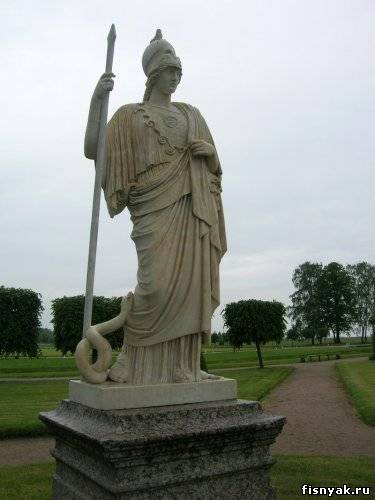
Zagreus- god of fertility, son of Zeus and Persephone.
Zeus- supreme god, king of gods and people.
Marshmallow- god of the west wind.
Iacchus- god of fertility.
Kronos- Titan, youngest son of Gaia and Uranus, father of Zeus. He ruled the world of gods and people and was overthrown from the throne by Zeus...
Mom- son of the goddess of Night, god of slander.
Morpheus- one of the sons of Hypnos, god of dreams.
Nereus- son of Gaia and Pontus, meek sea god.
Note- the god of the south wind, depicted with a beard and wings.
Ocean- Titan, son of Gaia and Uranus, brother and husband of Tethys and father of all the rivers of the world.
Olympians- the supreme gods of the younger generation of Greek gods, led by Zeus, who lived on the top of Mount Olympus.

Pan- forest god, son of Hermes and Dryope, goat-footed man with horns. He was considered the patron saint of shepherds and small livestock.
Pluto- the god of the underworld, often identified with Hades, but unlike him, he owned not the souls of the dead, but the riches of the underworld.
Plutos- son of Demeter, god who gives wealth to people.
Pont- one of the senior Greek deities, the offspring of Gaia, the god of the sea, the father of many titans and gods.
Poseidon- one of the Olympian gods, brother of Zeus and Hades, who rules over the sea elements. Poseidon was also subject to the bowels of the earth,
he commanded storms and earthquakes.
Proteus- sea deity, son of Poseidon, patron of seals. He had the gift of reincarnation and prophecy.

Satires- goat-footed creatures, demons of fertility.
Thanatos- the personification of death, twin brother of Hypnos.
Titans- generation of Greek gods, ancestors of the Olympians.
Typhon- a hundred-headed dragon born of Gaia or Hera. During the battle of the Olympians and the Titans, he was defeated by Zeus and imprisoned under the volcano Etna in Sicily.
Triton- son of Poseidon, one of the sea deities, a man with a fish tail instead of legs, holding a trident and a twisted shell - a horn.
Chaos- an endless empty space from which at the beginning of time the most ancient gods of the Greek religion - Nyx and Erebus - emerged.
Chthonic gods - deities of the underworld and fertility, relatives of the Olympians. These included Hades, Hecate, Hermes, Gaia, Demeter, Dionysus and Persephone.
Cyclops- giants with one eye in the middle of the forehead, children of Uranus and Gaia.
Eurus (Eur)- god of the southeast wind.

Aeolus- lord of the winds.
Erebus- personification of the darkness of the underworld, son of Chaos and brother of Night.
Eros (Eros)- god of love, son of Aphrodite and Ares. In the most ancient myths - a self-emerging force that contributed to the ordering of the world. He was depicted as a winged youth (in the Hellenistic era - a boy) with arrows, accompanying his mother.
Ether- sky deity
Goddesses of ancient Greece

Artemis- goddess of hunting and nature.
Atropos- one of the three moiras, cutting the thread of fate and ending a human life.
Athena (Pallada, Parthenos)- the daughter of Zeus, born from his head in full military armor. One of the most revered Greek goddesses, the goddess of just war and wisdom, the patroness of knowledge.
Aphrodite (Kytharea, Urania)- goddess of love and beauty. She was born from the marriage of Zeus and the goddess Dione (according to another legend, she came out of the sea foam)
Hebe- daughter of Zeus and Hera, goddess of youth. Sister of Ares and Ilithyia. She served the Olympian gods at feasts.
Hecate- goddess of darkness, night visions and sorcery, patroness of sorcerers.
Gemera- goddess of daylight, personification of the day, born of Nikta and Erebus. Often identified with Eos.
Hera- the supreme Olympian goddess, sister and third wife of Zeus, daughter of Rhea and Kronos, sister of Hades, Hestia, Demeter and Poseidon. Hera was considered the patroness of marriage.
Hestia- goddess of the hearth and fire.
Gaia- mother earth, foremother of all gods and people.
Demeter- goddess of fertility and agriculture.
Dryads- lower deities, nymphs who lived in trees.

Ilithia- patron goddess of women in labor.
Iris- winged goddess, assistant of Hera, messenger of the gods.
Calliope- muse of epic poetry and science.
Kera- demonic creatures, children of the goddess Nikta, bringing troubles and death to people.
Clio- one of the nine muses, the muse of history.
Clotho ("spinner")- one of the moiras that spins the thread of human life.
Lachesis- one of the three Moira sisters, who determine the fate of every person even before birth.
Summer- Titanide, mother of Apollo and Artemis.
Mayan- a mountain nymph, the eldest of the seven Pleiades - the daughters of Atlas, the beloved of Zeus, from whom Hermes was born to her.
Melpomene- the muse of tragedy.
Metis- the goddess of wisdom, the first of the three wives of Zeus, who conceived Athena from him.
Mnemosyne- mother of nine muses, goddess of memory.

Moira- goddess of fate, daughter of Zeus and Themis.
Muses- patron goddess of the arts and sciences.
Naiads- nymphs-guardians of waters.
Nemesis- daughter of Nikta, a goddess who personified fate and retribution, punishing people in accordance with their sins.
Nereids- fifty daughters of Nereus and the oceanids Doris, sea deities.
Nika- personification of victory. She was often depicted wearing a wreath, a common symbol of triumph in Greece.
Nymphs- lower deities in the hierarchy of Greek gods. They personified the forces of nature.
Nikta- one of the first Greek deities, the goddess - the personification of the primordial Night
Orestiades- mountain nymphs.
Ory- goddess of the seasons, peace and order, daughter of Zeus and Themis.
Peyto- goddess of persuasion, companion of Aphrodite, often identified with her patroness.
Persephone- daughter of Demeter and Zeus, goddess of fertility. The wife of Hades and the queen of the underworld, who knew the secrets of life and death.
Polyhymnia- the muse of serious hymn poetry.
Tethys- daughter of Gaia and Uranus, wife of Ocean and mother of the Nereids and Oceanids.
Rhea- mother of the Olympian gods.
Sirens- female demons, half-woman, half-bird, capable of changing the weather at sea.
Waist- the muse of comedy.
Terpsichore- muse of dance art.
Tisiphone- one of the Erinyes.
Quiet- the goddess of fate and chance among the Greeks, companion of Persephone. She was depicted as a winged woman standing on a wheel and holding a cornucopia and a ship's rudder in her hands.
Urania- one of the nine muses, patroness of astronomy.
Themis- Titanide, goddess of justice and law, second wife of Zeus, mother of mountains and moira.
Charites- goddess of female beauty, the embodiment of a kind, joyful and eternally young beginning of life.
Eumenides- another hypostasis of the Erinyes, revered as goddesses of benevolence, who prevented misfortunes.
Eris- daughter of Nikta, sister of Ares, goddess of discord.
Erinyes- goddesses of vengeance, creatures of the underworld, punishing injustice and crimes.
Erato— Muse of lyrical and erotic poetry.
Eos- goddess of the dawn, sister of Helios and Selene. The Greeks called it “rose-fingered.”
Euterpe- muse of lyrical chant. Depicted with a double flute in her hand.
And finally, a test to find out what kind of God you are
tests.ukr.net
Which Greek god are you?
Vulcan - god of fire
In a world where there are so many deceivers, you are a true treasure. You may not be very attractive in appearance, but your kind heart attracts any woman to you. You have true maturity, which all women so want to see and so rarely find in men. Intelligence and charm make you the man many ladies would like to marry. As for bed, here too you shine with many talents. Your passion is a true volcano, just waiting in the wings to erupt. The woman with you is a violin in the hands of a master. The main thing is not to overdo it, otherwise your partner may go crazy with happiness! One night with you is enough to say - you are the god of sex.
The gods of Ancient Greece were different from other divine entities presented in any other religion of that time. They were divided into three generations, but the names of the second and third generations of the gods of Olympus are more familiar to the ears of modern people: Zeus, Poseidon, Hades, Demeter, Hestia.
According to legend, since the beginning of time, power belonged to the supreme god Chaos. As the name implies, there was no order in the world and then the goddess of the Earth Gaia married Uranus, the father of Heaven, and the first generation of powerful titans was born.
Kronos, according to some sources Chronos (keeper of time), was the last of the six sons of Gaia. The mother doted on her son, but Kronos was a very capricious and ambitious god. One day, Gaia received a prophecy that one of Kronos’ children would kill him. But for the time being, she also kept in her depths a fortuneteller: a blind half-breed Titanide and the secret itself. Over time, Gaia's mother got tired of constant childbirth and then Kronos castrated his father and overthrew him from heaven.
From this moment a new era began: the era of the Olympian gods. Olympus, whose peaks reach into the sky, became home to generations of gods. When Kronos decided to get married, his mother told him about the prediction. Not wanting to part with the power of the supreme god, Kronos began to swallow all the children. His wife, meek Rhea, was horrified by this, but could not break her husband’s will. Then she decided to cheat. Little Zeus, immediately after birth, was secretly transferred to the forest nymphs in wild Crete, where the gaze of his cruel father never fell. Having reached adulthood, Zeus overthrew his father and forced him to regurgitate all the children he had swallowed.
Thunderer Zeus, father of the gods

But Rhea knew: Zeus’s power is not endless and he, like his father, is also destined to die at the hands of his son. She also knew that the titans, imprisoned by Zeus in gloomy Tartarus, would soon be freed and it was they who would take part in the overthrow of Zeus, the father of the Olympian gods. Only one survivor of the Titans could help Zeus maintain power and not become like Kronos: Prometheus. The Titan had the gift of seeing the future, but he did not hate Zeus for his cruelty towards people.
In Greece, it is believed that before Prometheus, people lived in permanent frost and were like wild creatures without reason or intelligence. Not only the Greeks know that according to legend, Prometheus brought fire to earth, stealing it from the temple of Olympus. As a result, the Thunderer chained the titan and doomed him to eternal torment. Prometheus had the only way out: an agreement with Zeus - the secret of maintaining power for the Thunderer was revealed. Zeus avoided marriage with the one who could bear him a son capable of becoming the leader of the Titans. Power was forever assigned to Zeus; no one and nothing dared to encroach on the throne.
A little later, Zeus took a liking to the gentle Hera, the goddess of marriage and guardian of the family. The goddess was unapproachable and the supreme god had to marry her. But after three hundred years, as the chronicles say, this is the period of the gods’ honeymoon, Zeus became bored. From that moment on, his adventures are described quite interestingly: the Thunderer penetrated mortal girls in a variety of forms. For example, to Danae in the form of a dazzling rain of gold, to Europe, the most beautiful of all, in the form of a thoroughbred bull with golden horns.
The image of the father of the gods has always been unchanged: surrounded by a strong thunderstorm, in the mighty hands of lightning.
He was revered and constant sacrifices were made. When describing the character of the Thunderer, special mention is always made of his steadfastness and severity.
Poseidon, god of the seas and oceans
Little is said about Poseidon: the brother of the formidable Zeus occupies a place in the shadow of the supreme god. It is believed that Poseidon was not distinguished by cruelty; the punishments that the god of the seas sent to people were always deserved. The most eloquent of the legends associated with the lord of water is the legend of Andromeda.
Poseidon sent storms, but at the same time fishermen and sailors more often prayed to him than to the father of the gods. Before traveling by sea, not a single warrior would risk leaving the harbor without praying in the temple. The altars were usually smoked for several days in honor of the lord of the seas. According to legends, Poseidon could be seen in the foam of the raging ocean, in a golden chariot drawn by horses of a special color. The gloomy Hades gave these horses to his brother; they were indomitable.
His symbol was the trident, which gives unlimited power to Poseidon in the vastness of the oceans and seas. But it is noted that God had a non-conflict character and tried to avoid quarrels and squabbles. He was always devoted to Zeus, did not strive for power, which cannot be said about the third brother - Hades.
Hades, ruler of the kingdom of the dead
 Gloomy Hades is an unusual god and character. He was feared and revered almost more than the ruler of existence, Zeus himself. The Thunderer himself experienced a feeling of strange fear, as soon as he saw his brother’s sparkling chariot, drawn by horses with demonic fire in his eyes. No one dared to step into the depths of the kingdom of Hades until there was such a will from the ruler of the underworld. The Greeks were afraid to pronounce his name, especially if there was a sick person nearby. Some records kept in the library of Alexandria say that before death people always hear the terrible, piercing howl of the keeper of the gates of hell. The two-headed, or according to some notes three-headed, dog Cerberus was an inexorable guardian of the gates of hell and the favorite of the formidable Hades.
Gloomy Hades is an unusual god and character. He was feared and revered almost more than the ruler of existence, Zeus himself. The Thunderer himself experienced a feeling of strange fear, as soon as he saw his brother’s sparkling chariot, drawn by horses with demonic fire in his eyes. No one dared to step into the depths of the kingdom of Hades until there was such a will from the ruler of the underworld. The Greeks were afraid to pronounce his name, especially if there was a sick person nearby. Some records kept in the library of Alexandria say that before death people always hear the terrible, piercing howl of the keeper of the gates of hell. The two-headed, or according to some notes three-headed, dog Cerberus was an inexorable guardian of the gates of hell and the favorite of the formidable Hades.
It is believed that when Zeus shared power, he offended Hades by giving him the kingdom of the dead. Time passed, the gloomy Hades did not lay claim to the throne of Olympus, but legends often describe that the ruler of the dead was constantly looking for ways to ruin the life of the father of the gods. Hades is portrayed by character as a vindictive and cruel person. It was precisely man, even in the chronicles of that era, that Hades was endowed with human traits more than others.
Zeus did not have complete power over his brother's kingdom; he could not bring out or free a single soul without the permission of Hades. Even at the moment when Hades kidnapped the beautiful Persephone, essentially his niece, the father of the gods chose to refuse the saddened Demeter rather than demand that his brother return his daughter to her mother. And only the right move of Demeter herself, the goddess of fertility, forced Zeus to descend into the kingdom of the dead and convince Hades to conclude an agreement.
Hermes, patron of cunning, deception and trade, messenger of the gods
 Hermes is already in the third generation of the gods of Olympus. This god is the illegitimate son of Zeus and Maya, daughter of Atlas. Maya, even before the birth of her son, had a prediction that her son would be an unusual child. But even she could not know that problems would begin from the infancy of the little god.
Hermes is already in the third generation of the gods of Olympus. This god is the illegitimate son of Zeus and Maya, daughter of Atlas. Maya, even before the birth of her son, had a prediction that her son would be an unusual child. But even she could not know that problems would begin from the infancy of the little god.
There is a legend about how Hermes, seizing the moment when Maya was distracted, slipped out of the cave. He really liked cows, but these animals were sacred and belonged to the god Apollo. Not at all embarrassed by this, the little rogue stole the animals, and in order to deceive the gods, he brought in the cows so that the tracks led out of the cave. And he immediately hid in the cradle. The angry Apollo quickly saw through the tricks of Hermes, but the young god promised to create and give away the divine lyre. Hermes kept his word.
From that moment on, golden-haired Apollo never parted with the lyre; all images of the god necessarily reflect this instrument. Lyra touched the god so much with her sounds that he not only forgot about the cows, but also gave Hermes his rod of gold.
Hermes is the most unusual of all the children of the Olympians in that he is the only one who could freely be in both worlds.
Hades loved his jokes and dexterity; it is Hermes who is often depicted as a guide to the dark kingdom of shadows. God brought souls to the rapids of the sacred river Styx and handed over the soul to the silent Chiron, the eternal carrier. By the way, the burial ritual with coins in front of the eyes is associated specifically with Hermes and Chiron. One coin for the work of God, the second for the carrier of souls.
Classmates
It arouses genuine interest, intrigues and excites. It combines the fictional and modern world. Quite a few books have been written about him and many films have been made. The Pantheon of Greek gods is a real treasure trove for studying the history, customs and life of Ancient Greece. What function did the celestials perform on the sacred Mount Olympus? What unimaginable power and authority were they endowed with? This and much more will be discussed in our new divine article!
A pantheon, or simply a group of gods belonging to the same religion, consisted of a large number of celestial beings, each of whom performed an assigned role and carried out its own function. In their appearance and behavior, the gods and goddesses were similar to ordinary people. They experienced the same emotions and feelings, fell in love and quarreled, were angry and had mercy, deceived and spread gossip. But their main difference was immortality! Over time, the history of relations between the gods became increasingly overgrown with myths. And this only increased interest and admiration for the ancient religion...
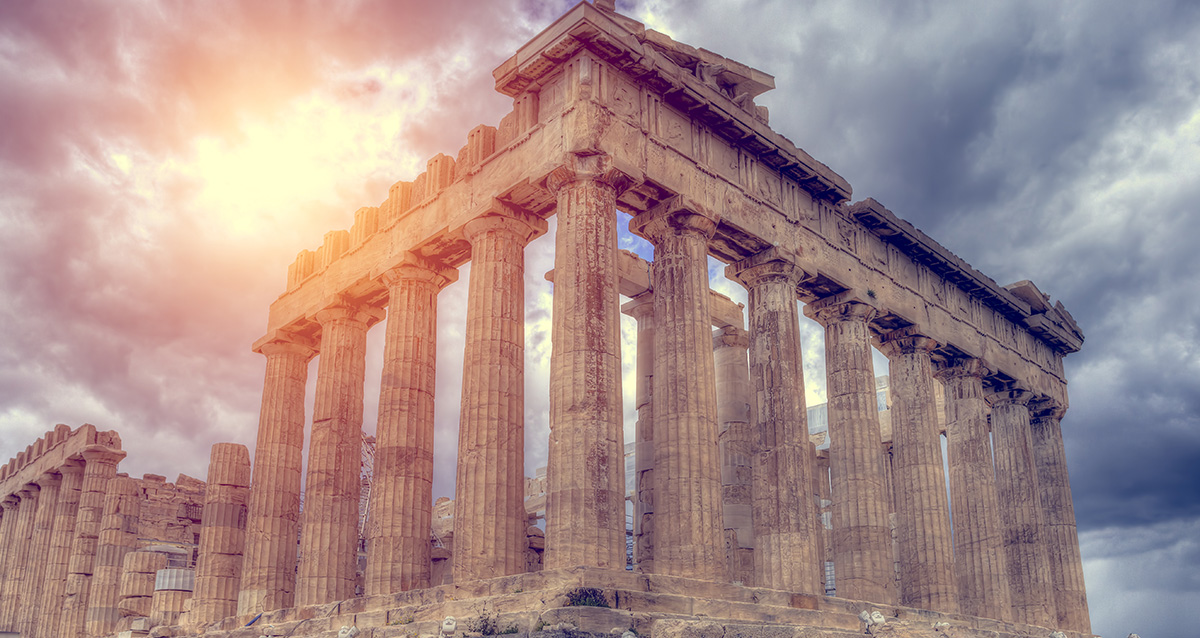
Representatives of the younger generation of celestials in Ancient Hellas were considered the main gods. Once upon a time, they took away the right to rule the world from the older generation (titans), who personified the natural elements and universal forces. Having defeated the Titans, the younger gods, under the leadership of Zeus, settled on Mount Olympus. We will tell you about the 12 main Olympian gods and goddesses, their assistants and companions, who were worshiped by the Greeks!
King of the gods and main deity. Representative of the endless sky, lord of lightning and thunder. Zeus had unlimited power over both people and gods. The ancient Greeks honored and feared the Thunderer, appeasing him in every possible way with the best donations. Babies learned about Zeus even in the womb, and attributed all misfortunes to the wrath of the greatest and omnipotent.
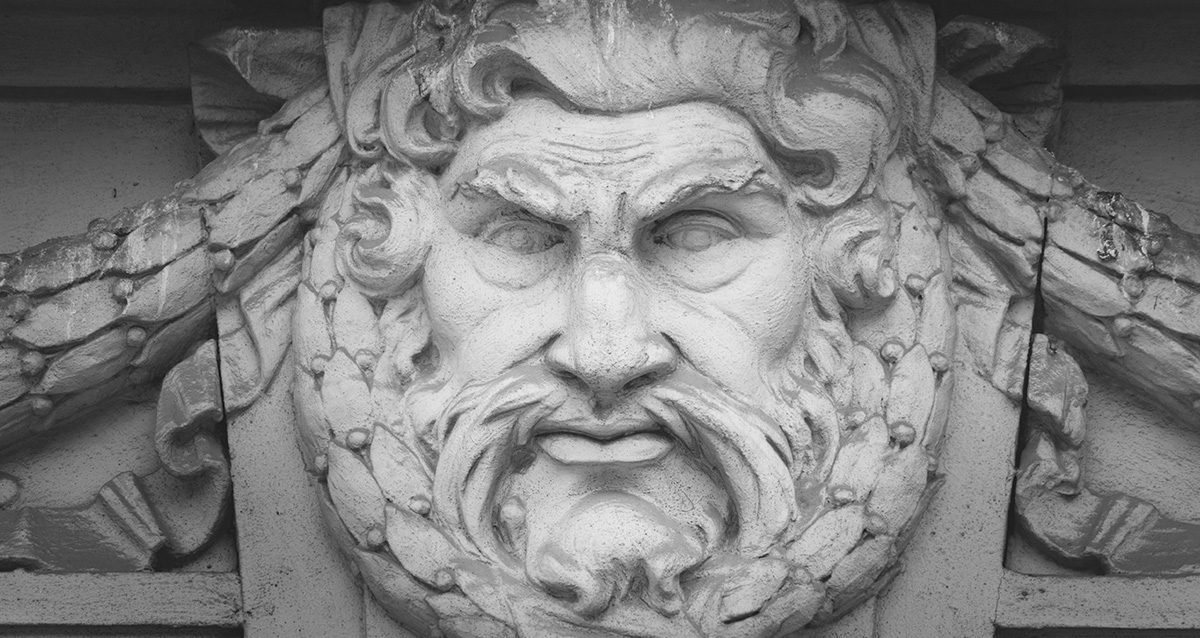
Brother of Zeus, ruler of the sea, rivers, lakes and oceans. He personified courage, stormy temper, hot temper and unearthly strength. As the patron saint of seafarers, he could cause famine, capsize and sink ships, and decide the fate of fishermen in open waters. Poseidon is closely associated with earthquakes and volcanic eruptions.
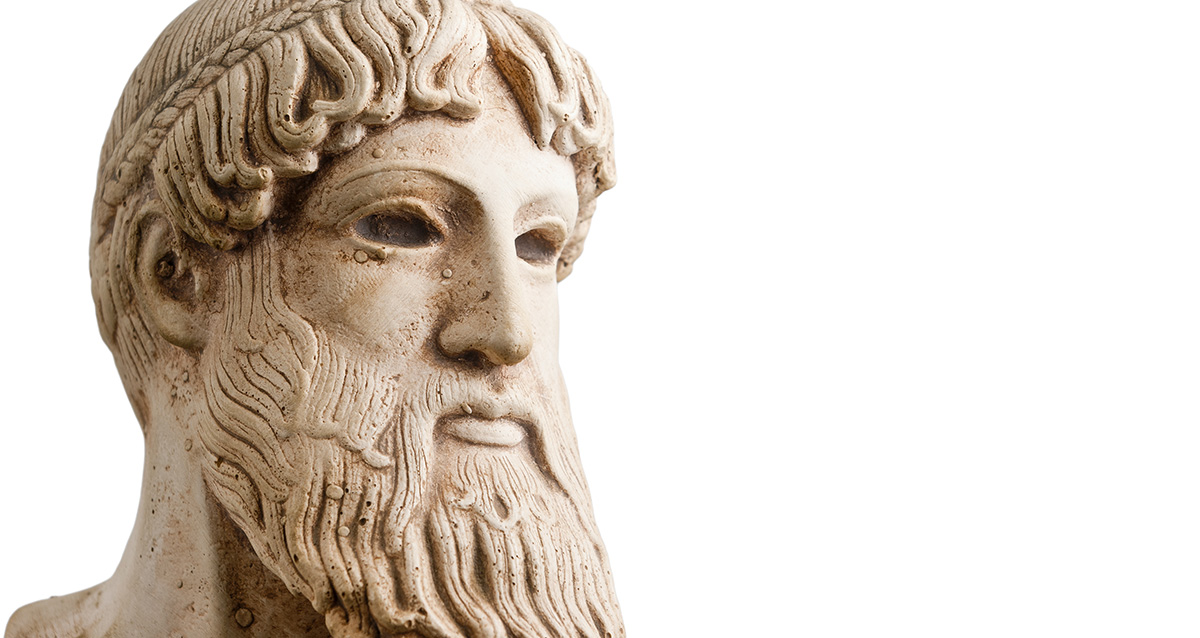
Brother of Poseidon and Zeus, to whom the entire underworld, the kingdom of the dead, was subordinate. The only one who did not live on Olympus, but was rightfully considered an Olympian god. All the dead went to Hades. Although people were afraid to even utter the name of Hades, in ancient mythology he is represented as a cold, unshakable and indifferent god, whose decision must be carried out unquestioningly. One can only enter into his dark kingdom with demons and shadows of the dead, where the sun's rays do not penetrate. There is no turning back.

Aristocratic and refined, the god of healing, sunlight, spiritual purity and artistic beauty. Having become the patron of creativity, he is considered the head of the 9 muses, as well as the father of the god of doctors, Asclepius.
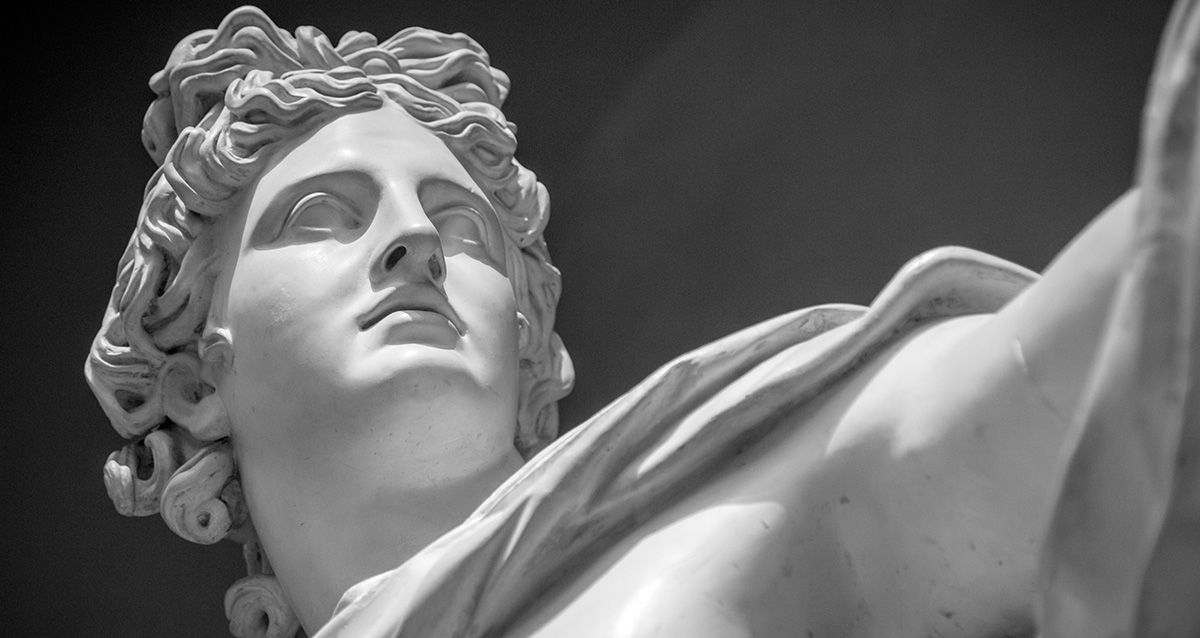
The most ancient god of roads and travel, patron of trade and merchants. This celestial being with wings on his heels was associated with a subtle mind, resourcefulness, cunning and excellent knowledge of foreign languages.
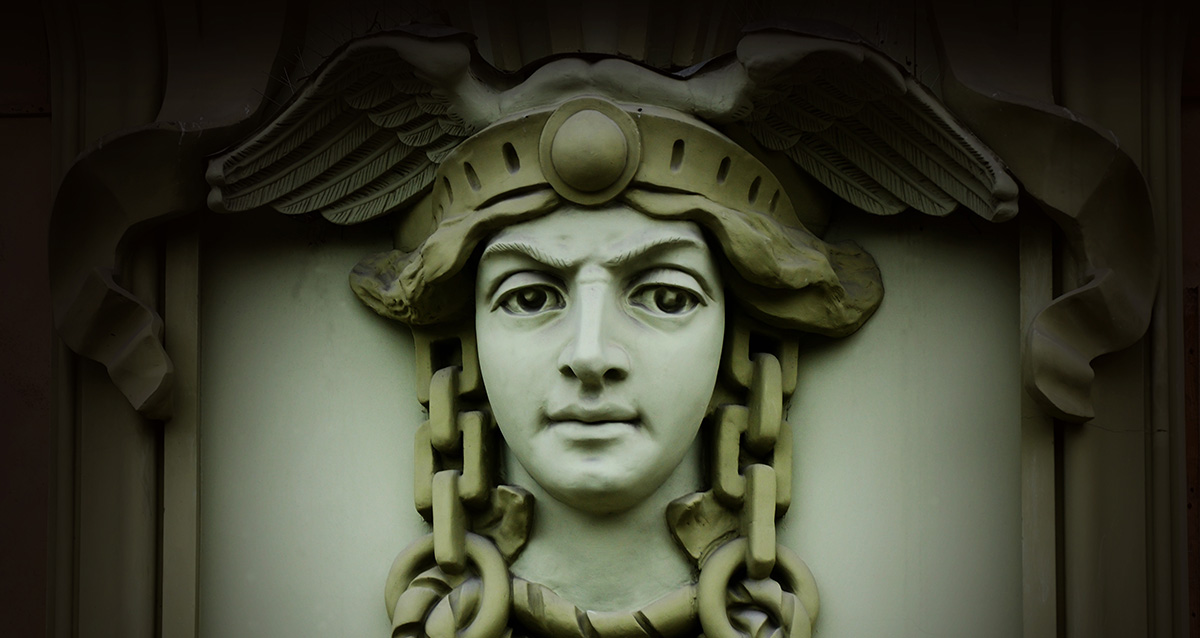
The insidious god of war and fierce battles. The mighty warrior preferred bloody reprisals and waged war for the sake of war itself.

Patron of blacksmithing, pottery and other crafts associated with fire. Even in ancient times, Hephaestus was associated with volcanic activity, roar and flame.
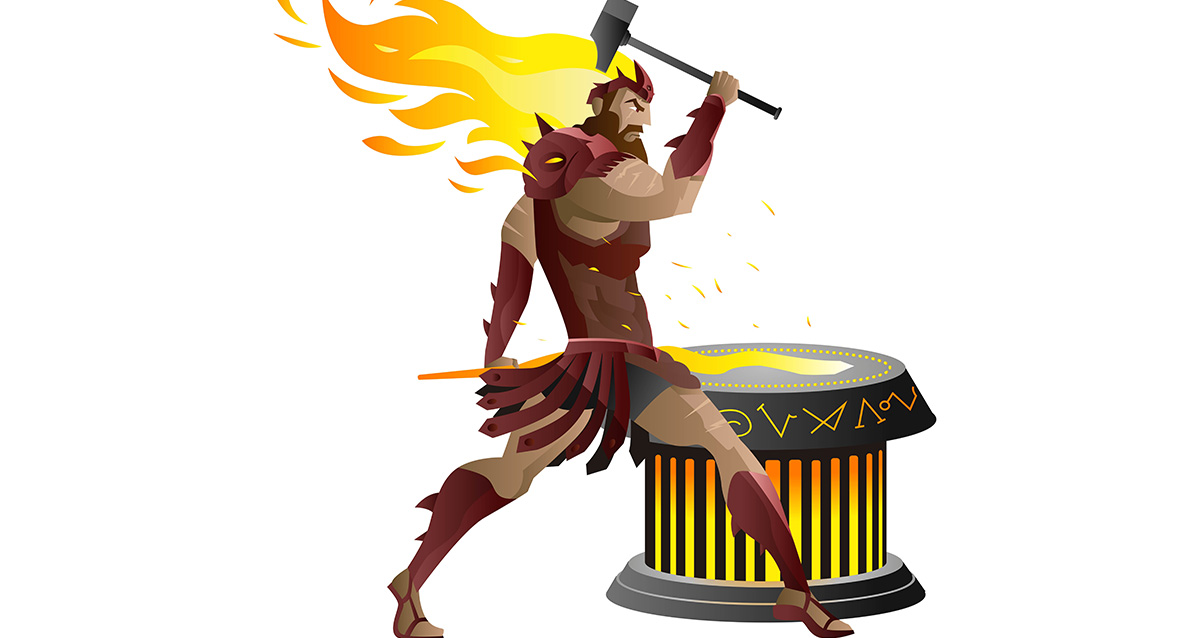
Wife of Zeus, patroness of marriage and conjugal love. The goddess was distinguished by jealousy, anger, cruelty and excessive severity. In a state of rage, she could bring terrible troubles to people.
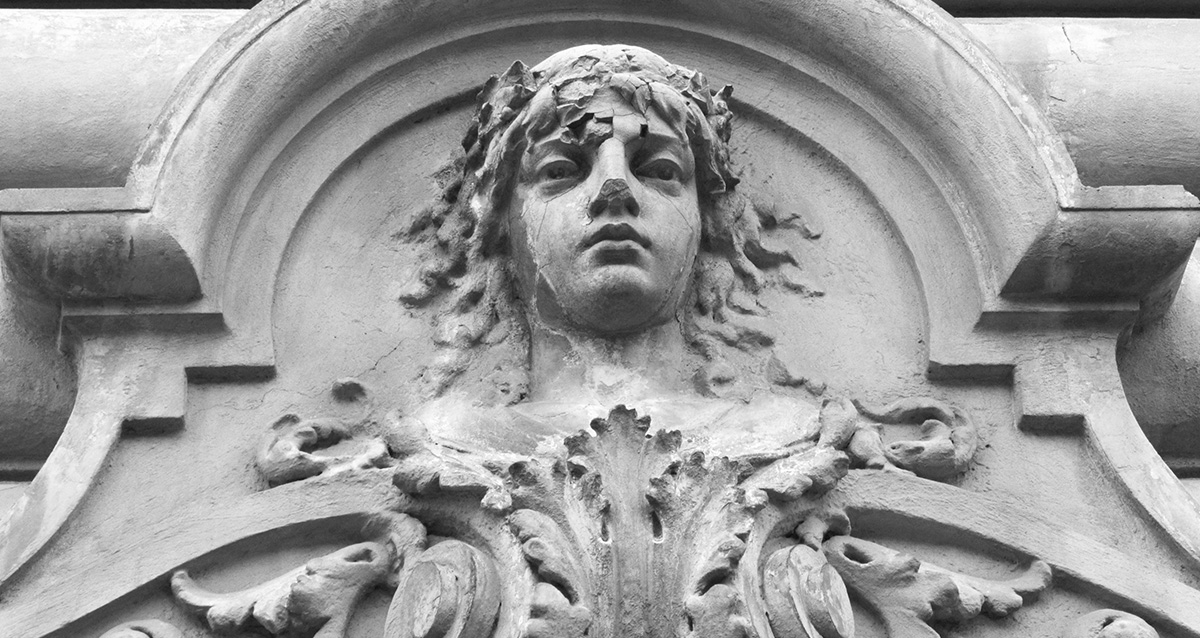
The daughter of Zeus, the beautiful goddess of love, who easily fell in love with herself and fell in love herself. In her hands was concentrated the great power of love, pure and sincere, which she bestowed on the gods and people.

Goddess of just war, wisdom, patroness of spiritual pursuits, art, agriculture and crafts. Pallas Athena was born from the head of Zeus in full armor. Thanks to her, public life flows and cities are built. For her knowledge and intelligence, she was the most respected and authoritative celestial being among the pantheon of Greek gods.

Patroness of agriculture and goddess of fertility. She is the guardian of life, who taught man peasant labor. She fills the barns and replenishes supplies. Demeter is the embodiment of the primitive energy of creativity, the great mother who gives birth to all living things.

Artemis
Goddess of forests and hunting, sister of Apollo. Patroness of vegetation and fertility. The virginity of the goddess is closely connected with the idea of birth and sexual relations.
In addition to the 12 main Olympian gods, among the Greek celestials there were many equally significant and authoritative names.
God of winemaking and all natural forces that make a person happy.

Morpheus. Everyone was in his arms. Greek god of dreams, son of Hypnos - god of sleep. Morpheus could take any form, accurately copy his voice, and appear to people in their dreams.
Son of Aphrodite and part-time god of love. A cute boy with a quiver and a bow accurately throws arrows at people, which ignite unbreakable love in the hearts of gods and people. In Rome, Cupid corresponded to it.

Persephone. The daughter of Demeter, kidnapped by Hades, who dragged her to his underworld and made her his wife. She spends part of the year upstairs with her mother, the rest of the time she lives underground. Persephone personified the grain that is sown in the ground and comes to life when it comes out into the light.
Patron of the hearth, family and sacrificial fire.

Pan. Greek god of forests, patron of shepherds and flocks. Represented with goat legs, horns and a beard with a pipe in his hands.
Goddess of victory and constant companion of Zeus. The divine symbol of success and a happy outcome is always depicted in a pose of rapid movement or with wings. Nika takes part in all musical competitions, military enterprises and religious celebrations.

And these are not all the Greek names of the gods:
- Asclepius is the Greek god of healing.
- Proteus is the son of Poseidon, a sea deity. He had the gift of predicting the future and changing his appearance.
- Triton, the son of Poseidon, brought news from the depths of the sea by blowing a conch shell. Depicted as a mixture of horse, fish and man.
- Eirene - the goddess of peace, stands at the Olympian throne of Zeus.
- Dike is the patroness of truth, a goddess who does not tolerate deception.
- Tyukhe is the goddess of luck and successful chance.
- Plutos is the ancient Greek god of wealth.
- Enyo is the goddess of furious war, causing fury in the fighters, bringing confusion to the battle.
- Phobos and Deimos are the sons and companions of Ares, the god of war.

